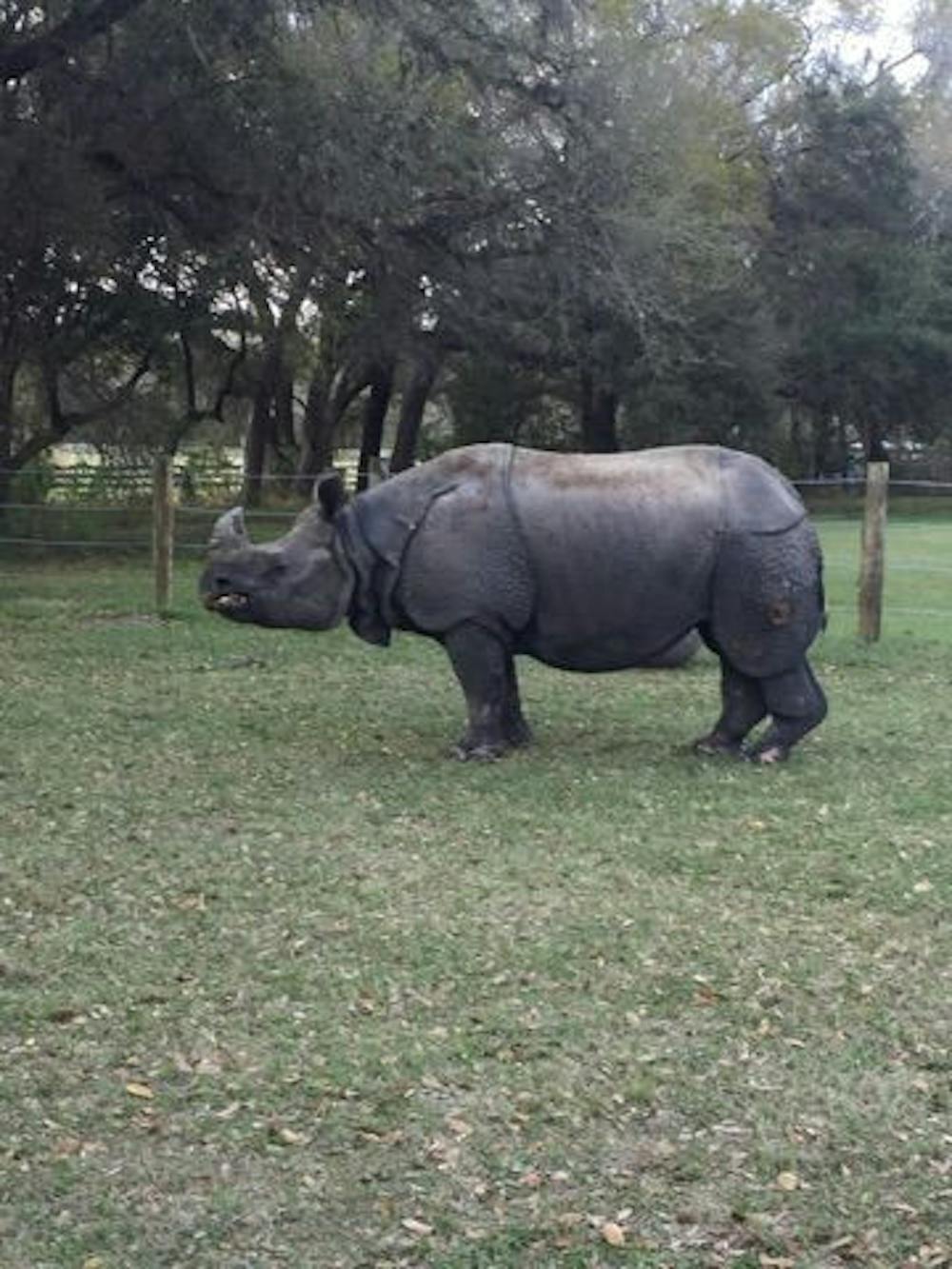As construction workers labor to rebuild his home — and donations flood in — Henry the rhino looks on, fortunate to have escaped a roaring fire without a scratch.
The 35-year-old, 4,600-pound Indian rhino was spending his Mondays like he often does, inside his shelter at Carson Springs Wildlife Conservation Foundation, when a fire ravaged his home Monday morning.
Barry Janks, the co-owner of the foundation, located at 8528 E. County Road 225, rushed to the shelter at about 10 a.m. to see a plume of black smoke billowing from inside.
“(Henry) came running out,” he said. “I was trying to guide him away from the fire.”
When the insulated shelter’s steel roof collapsed, the rhino panicked but escaped with only minor scratches. In the process of guiding Henry, Janks tore a ligament in his left foot.
Firefighters responded and put out the flames that ravaged the 28-by-24-foot shelter. The damage was too severe to determine the cause of the fire, Janks said. It will cost about $25,000 to rebuild.
Donations came in quickly, he said. Even a recycling company helped by sending a dumpster to help clean out the damaged enclosure.
More than $7,000 has been donated to rebuild the shelter.
Money has poured in from a GoFundMe page and PayPal accounts, Janks said.
Meanwhile, Henry, who is used to warm weather, is living out in the open.
“It’s cold out,” Janks said. “It’s a little tough for the old guy.”
Henry retired to Carson Springs — a facility that houses tigers, lemurs, foxes and other animals — in November 2016 after being used for breeding across the country, he said. Henry has more than 60 grandchildren.
Joe Andreoli, 25, met Henry with his girlfriend on a Valentine’s Day tour of Carson Springs. They fed Henry carrots and sweet potatoes and took pictures with him.
“It was a great experience,” the UF geography graduate student said.
Andreoli saw a Facebook post from Carson Springs about the fire and donated $37 to the cause.
“With all those animals there, they could have been hurt,” he said. “I was scared.”
Nicole Warner sent $20 on the fundraising website. She pet Henry’s horn and snout during her company’s holiday party in December 2016 at the conservation facility.
“It was a once-in-a-lifetime experience,” she said.
She saw the post Monday and remembered learning about how Indian rhinos aren’t used to the cold.
“I thought, ‘Poor Henry is going to be cold,’” she said. “He came to warm Florida to retire, and this wasn’t the weather he might be expecting.”
Henry is acclimating after the fire and watches as construction workers plan and build his new home, Janks said.
“He’s a trooper,” Janks said.
Contact Meryl Kornfield at mkornfield@alligator.org and follow her on Twitter at @MerylKornfield
Henry the rhino






